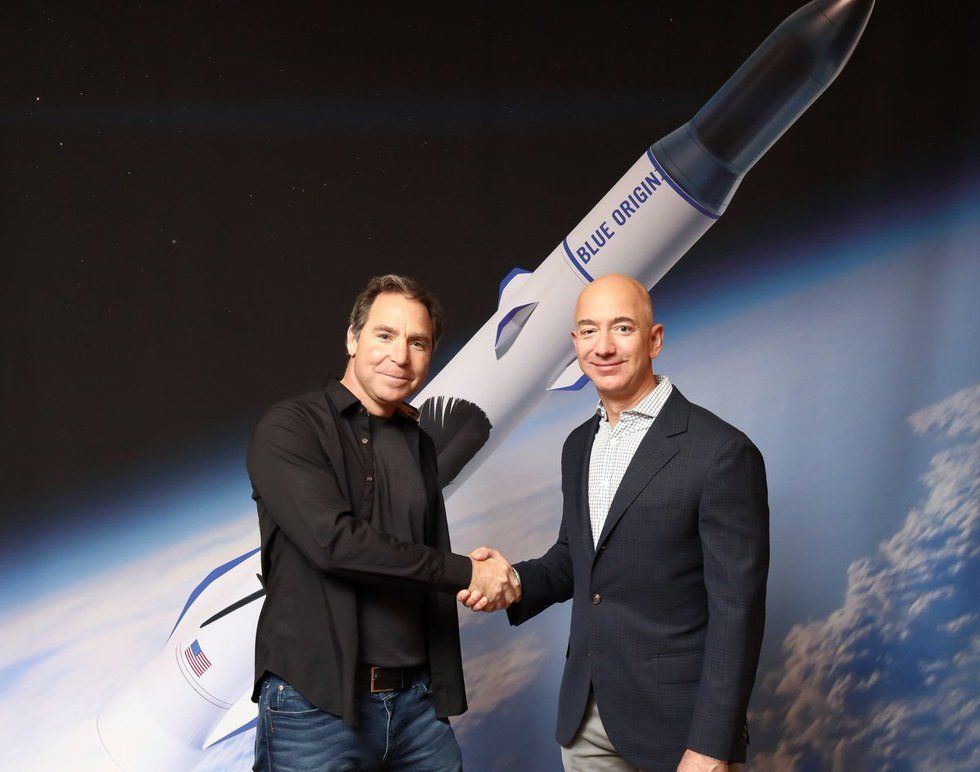On March 8th, Amazon and Blue Origin CEO, Jeff Bezos, announced a contract with OneWeb for five launches with the New Glenn orbital launch vehicle. This deal came just a day after Blue Origin secured its first customer with French satellite producer, Eutelsat. The company expects its first launch in 2020. Its New Glenn vehicle, named for the late pioneer astronaut John Glenn, had its massive BE-4 engines completed earlier in the week, which Blue Origin advertised in a CGI promotional video.
This announcement is a critical step for the company that strives to deliver both people and satellites to space because it is the first indication of true competition in the fledgling corporate space industry, which has thus far been dominated by Elon Musk's SpaceX. Musk has become the face of the field in recent years through his ambitiously planned manned missions to Mars and SpaceX's development of reusable rockets. It was announced last week that in late 2018, SpaceX will launch a week-long manned mission to orbit the Moon. It will be the first manned trip to the Moon and humans leaving low-Earth orbit since 1972.
The privatized space sector, which is dominated by billionaires and government contractors has received polarized reception. Much of the negative attitudes towards the field aggregate on affordability due to high rocketry costs and dubious feasibility of general public involvement. CEOs such as Musk and Bezos have emphasized the importance of making the missions cost-effective by developing reusable rockets and making the companies more efficient than mammoth government programs like NASA.
SpaceX, Lockheed Martin, and Boeing have served as the primary contractors to the United States government by delivering satellites and supplies to the International Space Station since the budget of NASA was slashed in 2010. Blue Origin will be working with Lockheed Martin and Boeing on the joint venture United Launch Alliance to contract for the US government, which will use the BE-4 engines for its Vulcan rocket.





















